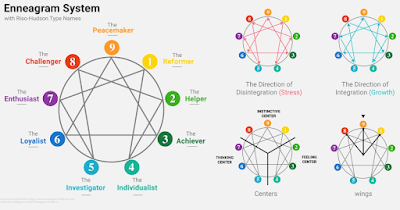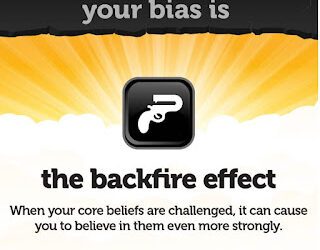Until recently, Ravi Zacharias was a hero of the Christian faith. If you happen to be in the dark about him, he was the world’s most well-known apologist, but recent investigations have revealed that he engaged in unknown numbers of immoral and illegal sexual sins before his death. In the next few days or weeks, there will likely be a slew of people, including well-known Christian leaders, who will comment on what happened and the lessons we should learn from this situation. I want to talk about a lesson that you likely won’t hear anywhere else, but I would argue it’s the most important because it can have the greatest effect on reducing the number of victims.
By all accounts, Ravi was more disciplined, devout, and virtuous than most other people, including others in ministry. He had a stellar reputation, which he seems to have genuinely earned (which does not justify placing someone above reproach). There’s a lot about Ravi and this situation that I do not know, but I do know psychology, and things like this don’t just happen overnight. They develop over time in a slow progression of seemingly harmless acts or minor sins (see hedonic treadmill and related terms).

If someone like Ravi can do such evil, SO CAN YOU! The Bible tells us as much when it says that the heart is deceptive above all else (Jeremiah 17:9) and no one is righteous, not even one (Romans 3:10). Or as Aleksandr Solzhenitsyn says in The Gulag Archipelago, “the line dividing good and evil cuts through the heart of every human being.” I am reasonably certain that 30 years ago, Ravi would have scoffed at the idea that he would ever commit such terrible sins. My hope is that people recognize that under the right circumstances, they too are capable of committing equally terrible acts.
Realistically, it’s almost certain that anyone reading this, or anyone else for that matter, will not sin to the degree that Ravi did. But that doesn’t mean we shouldn’t be on guard. Adultery is more likely, but the number of people who buy sex from someone who’s been trafficked against their will or view illegal pornography (underage or non-consensual) is probably much more common than most people think. It doesn’t have to be sexual sin either. Drunk driving, stealing (even “small” things like office supplies from work), violent anger, addiction (drugs, alcohol, gambling, etc.),
We like to think that our moral beliefs and character will prevent us from doing evil, but it’s not enough. Beliefs and character are good and necessary, but they’re not enough. Every atrocity committed throughout world history was largely done by normal, “good” people. Sure, there were evil people at the top and people who dissented, but most of the common soldiers who carried out the evil deeds were well-intentioned, normal people. Psychological experiments such as the Milgram experiments, Stanford prison study, and many more have repeatedly shown that “good” people can do great harm given the right situation, and this includes becoming active perpetrators (not just passive conformers).
Thankfully, we aren’t helpless victims, doomed to become perpetrators at the drop of a hat. Contrary to popular notions, the most powerful thing we can do is to NOT only depend on the strength of our own character. We can and should grow our character, but the most potent preventative measures are in external resources. Ironically, using external measures will form your character in positive ways, creating a synergistic effect.
When I say external resources, I am referring to people, things, or actions that help us avoid the first steps of sin so they never even have the chance to escalate into much bigger sins (sexual sins are the obvious ones, but this applies to others as well). There are countless things you can do so I will only give a few examples.
- Give your spouse complete access to all your accounts, phone(s), and computer(s). If unmarried, give this access to one or more of the people closest to you (who will encourage moral behavior).
- If needed, put a porn lock or filter on your devices, keep your computer in a public place, and if you are constantly failing in this area, get rid of your smartphone.
- Stop ingesting or limit consumption of all negative forms of media. It doesn’t just have to be media that is sexualized, but anything that promotes or normalizes. This may include social media (and who you follow on it) or even the nightly news for some people. We all have different temptations so don’t compare yourself to others. Know your own weaknesses and focus on avoiding those.
- If married, don’t be alone with members of the opposite sex (or limit it to rare occasions). Don’t talk bad about your spouse to others, especially members of the opposite sex (address those issues with your spouse and/or a therapist). If living alone, get a roommate who can hold you accountable. Likewise, if traveling for business, see if you can share a room with a co-worker rather than each getting your own room.
- You can also learn more about how sins start or grow. The book His Needs, Her Needs does this pretty well in the context of adultery. Fight the New Drug has lots of information on how pornography is harmful to people who consume it, make it, and society. Understanding these things better can help you better prevent sins.
- Stop tolerating or rationalizing things you do that are just small sins or things you know are probably wrong. Examples might include speeding, looking at porn or fantasizing about people you’re not married to, cheating on your taxes, pirating digital media (music, movies, books, etc.), getting drunk, name-calling or using dehumanizing language (common on social media), using your phone while driving (illegally, but even legal use is arguably wrong in most circumstances), and others.
- If you are in a position of power (or as you gradually achieve these positions), distribute your power where you can, put precautions in place to keep your ego in check, create an atmosphere of openness and respect, and train the people you lead how to appropriately question authority.
- No matter how big or small your failure is, repent and confess it to someone. The longer you wait, the harder it becomes. Do it now and don’t skip confessing to someone. When sins stay in the dark, that’s how they grow and lead to more and more sins.
- Surround yourself with virtuous people. If you spend time with people who act virtuously and that is the norm of the group, you will be much more likely to adopt and internalize those values so that you will grow in virtue rather than in vice.
My final suggestion, which Christians should do anyway, is to donate money sacrificially. Why? The things Ravi did can scarcely happen without fairly large amounts of excess money (which Ravi had personally and had access to through the ministry). It’s unlikely anyone reading this will ever have the power or opportunities that Ravi had, but most who read this either have or will have enough money to make some really bad choices and probably the occasional opportunity to do so.
Ravi was on a pedestal, which was one of many factors that contributed to his actions and allowed him to get away with it. No one should be on a pedestal so high they are not questioned, however, I want to challenge you not to put yourself on a pedestal either. Have the humility to recognize your potential weaknesses and put measures into your life to prevent you from even starting down a dangerous road. Being a morally upright and virtuous person right now is not a guarantee that you will continue to be this way in the future. It helps, but it’s no guarantee.
Flee from sexual immorality.
– 1 Corinthians 6:18 (NIV)
“You have heard that it was said, ‘You shall not commit adultery.’ But I tell you that anyone who looks at a woman lustfully has already committed adultery with her in his heart. If your right eye causes you to stumble, gouge it out and throw it away. It is better for you to lose one part of your body than for your whole body to be thrown into hell. And if your right hand causes you to stumble, cut it off and throw it away. It is better for you to lose one part of your body than for your whole body to go into hell.- Matthew 5:27-30 (NIV)



